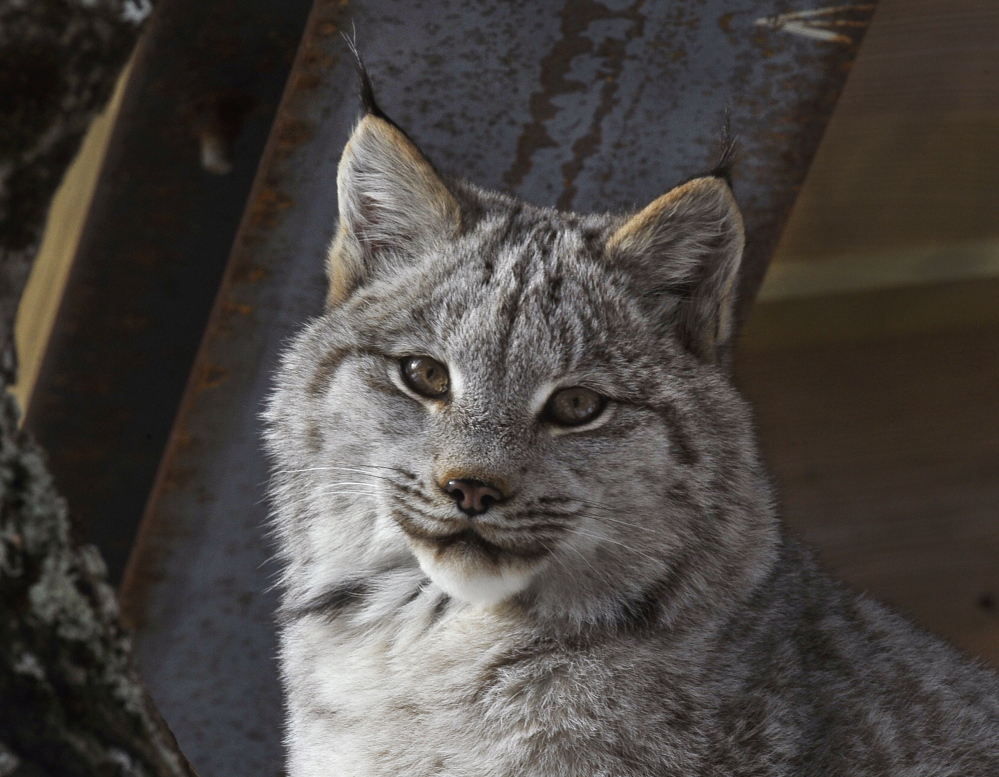A coalition of environmental groups is pressing ahead with a lawsuit it says will provide more protection for Maine’s lynx, despite new trapping restrictions adopted by the state to safeguard the animals.
Canada lynx are protected under the federal Endangered Species Act, so states cannot allow incidental harm to the wild cats without a permit from the U.S. Fish and Wildlife Service. Their status impacts trapping rules in Maine, where hundreds of trappers target animals like minks, fishers and foxes for their fur.
Three environmental groups – the Animal Welfare Institute, Center for Biological Diversity and Wildlife Alliance of Maine – filed the lawsuit against the service, which they say shouldn’t have issued such a permit to Maine last year. The lawsuit states that Maine’s trapping programs violate the Endangered Species Act by failing to minimize harm to lynx.
New regulations for the 2015 trapping season were implemented last week to decrease the probability of trapping or hurting a lynx, the Maine Department of Inland Fisheries and Wildlife has said. The rules require special devices to make them less likely to catch lynx, among other restrictions, the state said.
Biologist D.J. Schubert with the D.C.-based Animal Welfare Institute said it’s unclear to his group that the new rules are sufficient, and the environmentalists are still reviewing them. Schubert said the lawsuit is still on either way, because it challenges the legitimacy of the federal government’s issuance of the permit in the first place.
He said the environmental impacts of Maine’s trapping program needed greater scrutiny before the permit was issued last year.
“I think their final rules certainly tighten up things,” Schubert said, but he added that he hasn’t reached a “firm conclusion as to whether it’s good enough.”
Federal Fish and Wildlife Service spokeswoman Meagan Racey declined to comment on the lawsuit. She said the department is aware of Maine’s new regulations and said the move “reflects their continued commitment to ensure the conservation plan we approved last year is effective in protecting lynx while carrying out the state’s furbearer trapping programs.”
Jen Vashon, Maine’s lynx biologist, said the changes to the lynx trapping program were in the works before the environmental groups sued. Vashon said the state’s fur trapping season begins on Oct. 18 and no further changes to the rules are likely.
State environmental officials are in the midst of updating lynx population estimates for Maine, which they say had between 750 and 1,000 of the animals in 2006. It’s the largest lynx population in the lower 48 states, federal fish and wildlife officials say.
State officials say tracking surveys from last winter indicate that Maine’s lynx population is expanding to the west and east while remaining stable in its core northern Maine range.
Brian Cogill, president of the 1,200-member Maine Trappers Association, said the new restrictions will add an additional hardship for trappers already suffering from a soft market for fur. However, he said he and others will abide by the new rules. The trappers association worked with state officials to craft the regulations.
“We’re going to do what we have to do to avoid catching a lynx,” Cogill said.
Send questions/comments to the editors.


